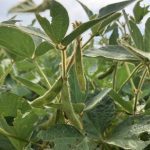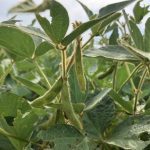Tag Archives dicamba

Proposed dicamba restrictions please expert

Health Canada proposes new restrictions for dicamba on soybeans

Staging slip leads to corn damage after Dicamba spray
Ontario Weed Tour highlights how timing, cold snaps and late spraying contribute to herbicide damage in corn

Pesticides under fire in U.S.
Recent court decisions have threatened farmers' abilities to use some herbicides

Drift: The dreadful ‘D’ word in crop spraying
Herbicide drift can cause crop damage and have other repercussions

Commodity Classic day one: Farmers concerned about EPA’s herbicide strategy
Farm bill, USDA crop forecasts on American farmers' minds at the Houston farm show

US allows farmers to use existing supplies of dicamba weedkillers
An Arizona court decision vacated the EPA's registration of dicamba-based herbicides

U.S. dicamba ruling won’t touch Canada: Bayer
Thousands of American farmers who have already bought the herbicide now in a bind after court bans over-the-top use

U.S. court cancels dicamba approval

US court cancels approvals for widely used dicamba weedkillers
EPA violated procedures mandating public input, judge rules


